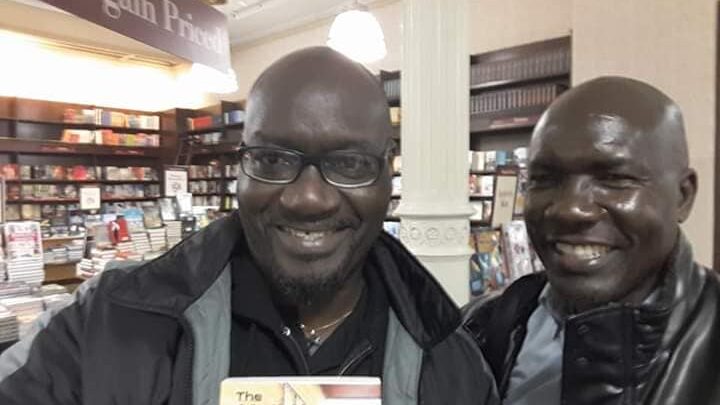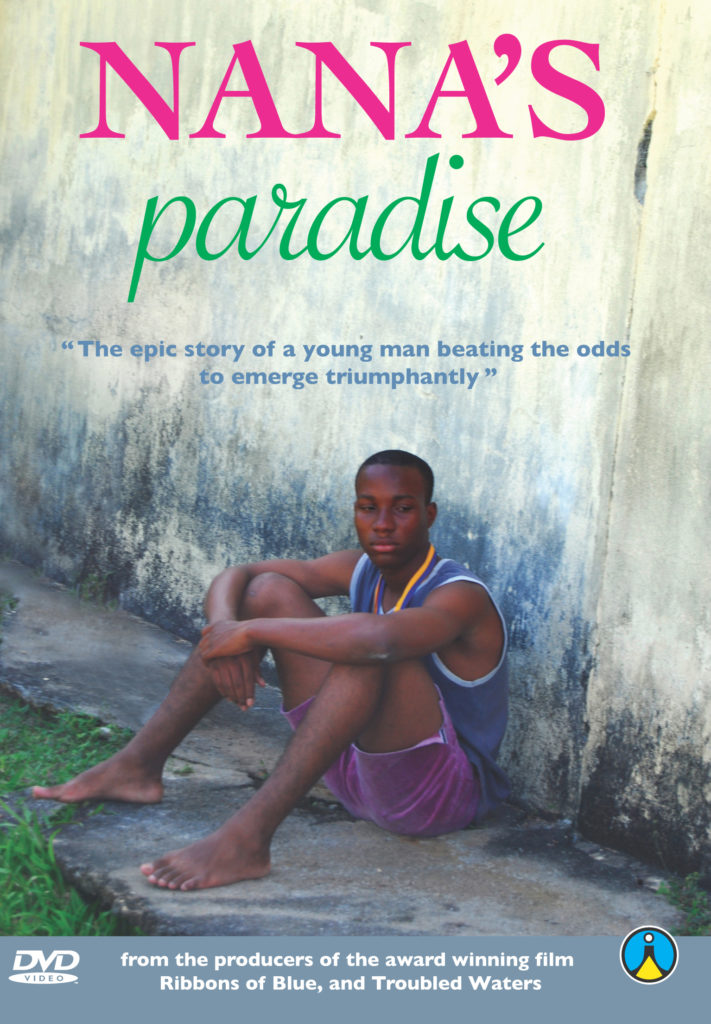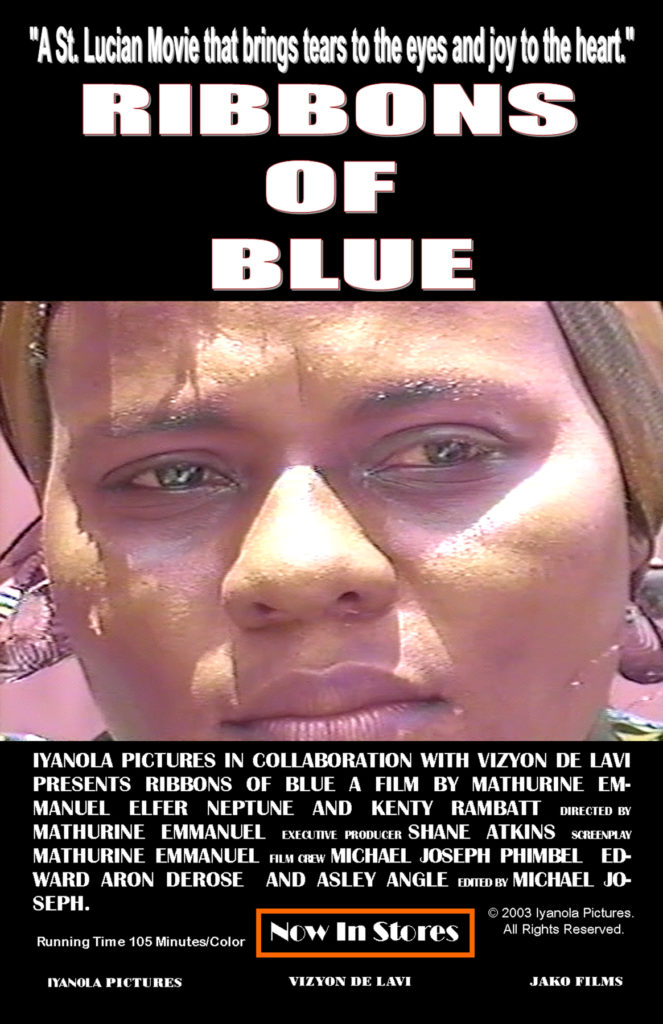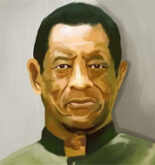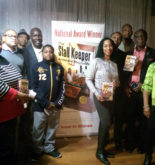St. Lucians Don’t Read, is often repeated as a truism by writers and readers alike. Understandably, the statement is partly a reflection of authors’ frustration and disappointment over meagre book and newspaper sales. Now, it may well be the case that St. Lucia isn’t as much of a reading public as some other countries, but should all the blame be placed on the citizenry?
Are poor book sales simply a problem of St. Lucians Don’t Read? Or could it be a problem of authors not writing the kinds of books readers would like to read? Or a problem (or challenge) of identifying and reaching readers, alerting them of available books, and convincing them that these are the kinds of books they would like to read, and making the books readily available for purchase?
Is it a Question of Untapped Markets?
Since my fifth book, No Man’s Land: A Political Introspection of St. Lucia, came out in February last year, at least four persons have bought a set of all five of my books, and many people expressed surprise that I have written that many books. And no matter how much we promote the books, I’m still meeting potential readers who haven’t heard of them or haven’t heard of me, even, suggesting that our promotional work is far from done. After purchasing a set of my five books on Amazon, a St. Lucian living in the US MoneyGram me EC$700 to purchase and send her books by other St. Lucian authors.
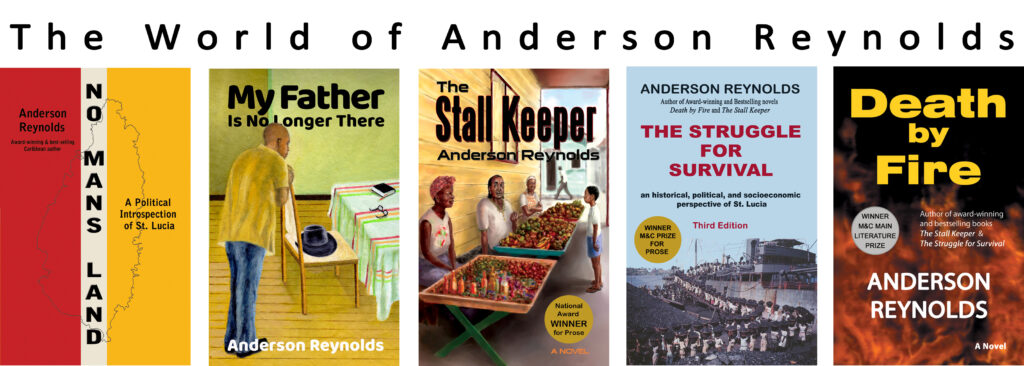
Alerted of McDonald Dixon’s soon-to-be-released crime novel, A Scream in the Shadows, and my forthcoming book, They Called Him Brother George: Portrait of a Caribbean Politician, she is waiting impatiently to purchase these as well. Her enthusiasm and others like her for St. Lucian literature made me wonder how many St. Lucians at home and the diaspora would acquire St. Lucian books once they are aware of the availability of the books and that they are must-reads
At the 2017 London leg of my international book tour, the audience was warm, engaging, and excited to meet and chat with me, and couldn’t wait to purchase their copy of The Stall Keeper, the book I was launching. In fact, thinking that the few books on the display table were all that was available, there was a rush to the book signing table after the formal presentation. Although the St. Lucians in London were the most appreciative audience I have ever read to, I was also taken aback by the enthusiastic reception of St. Lucians at my other tour stops, namely New York (2017, 2018), Atlanta, Hartford Connecticut, Toronto, and Washington D.C., Los Angeles (2018). All this made me wonder the extent to which the diaspora represents an untapped market for St. Lucian literature, where the challenge is one of reaching readers.
Is it a Question of Deficient Marketing?
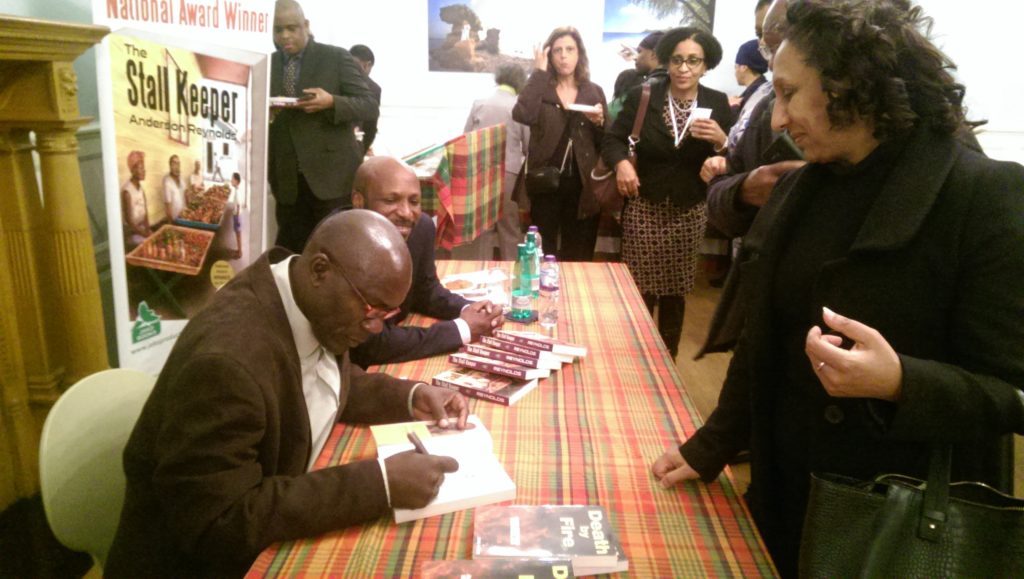
Traditionally, books are published by publishers, which, operating as businesses, take on the role of not only packaging, printing, and placing books in retail outlets, but also the promotion, publicity, and marketing of books. Most St. Lucian authors are self-published, meaning, in place of a traditional publisher, they used their own monies to produce and put their books on the market.
Indeed, in recent years there has been a proliferation of books (self-published) by St. Lucians. This is partly due to digital printing, which has made book printing a much more manageable and affordable enterprise for the self-published author. Unlike earlier methods of book printing such as letterpress and offset printing, digital printing is “designed to create one copy of a book at a time.” This technology has given rise to print on demand, thereby avoiding printing books in large quantities and the accompanying storage cost, since with this technology the per unit cost of producing a small number of books, or even one copy, is reasonable and not greatly different than printing in large quantities. Indeed, with a cover design and typeset manuscript, an author can publish a book on Amazon without incurring any printing cost. And with email, social media, and the ubiquitous internet, authors can inform St. Lucians (the world, even) at home and abroad of their masterpieces.
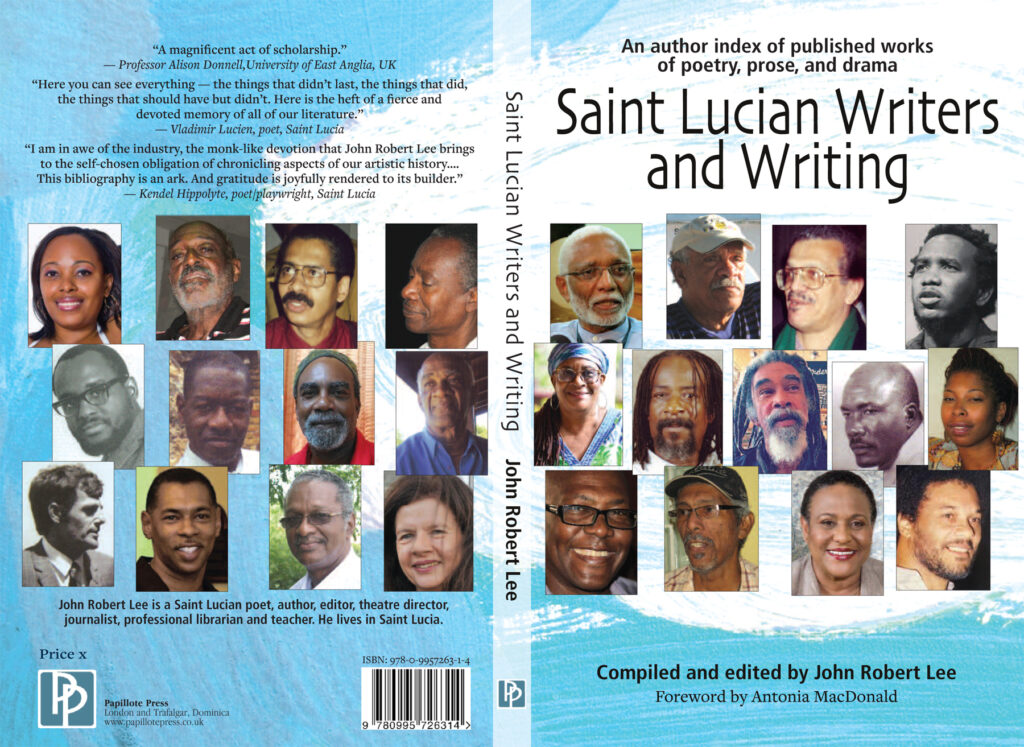
All fair and good. But here is the catch. Self-published authors may have been able to sidestep traditional publishers and the book manufacturing role they play, but apparently many seem to forget that the traditional publishers were also involved in book marketing upon which book sales depend. In St. Lucia, in publishing a book, it appears that our self-publishers simply host a little launch event in Castries, sell a few books to friends and family, place the book in a few outlets, and then forgetting all about marketing and publicity, go about their merry way, and when sales of their book do not meet expectations, they point fingers: St. Lucians Don’t Read.

But how about a national book tour with secondary and possibly primary school visits, hotel book readings and signings, launch events in Vieux Fort, Soufriere, other locales, and the diaspora. Baron Foods, The Windward and Leeward Brewery, St. Lucia Distilleries, Duboulay Bottling Company, and other St. Lucian manufacturers do not just sit around and say: St. Lucians don’t drink, or St. Lucians don’t cook. They actively promote and market their goods, they actively grow the market for their respective products. Why should books be any different?
Is it a Problem of How Success is Defined?
Besides failing to adequately perform the role of book promoters and marketers, our St. Lucian authors may have a problem in how they define success.
Witnessing the publicity and promotion surrounding the publication of No Man’s Land: A Political Introspection of St. Lucia, a once prominent St. Lucian journalist said he wishes me luck, but he has “already given up on St. Lucia, St. Lucians don’t read, they don’t support their own.” I said to myself, so how does such a reaction help me, isn’t that telling me I’m wasting my time, I should close shop? Isn’t the problem one of defining success? Obviously, I will not become a Stephen King, selling millions of copies or even being able to live off my writing, but isn’t selling a few hundred copies and readers’ expressed appreciation and the impact I’m having on St. Lucian society and gaining prominence as a St. Lucian writer, a St. Lucian influencer, a success story? I think it is critically important to define our success in ways that motivate us to keep pushing forward, for often and unbeknown to us our efforts are doing plenty of good, inspiring countless others.
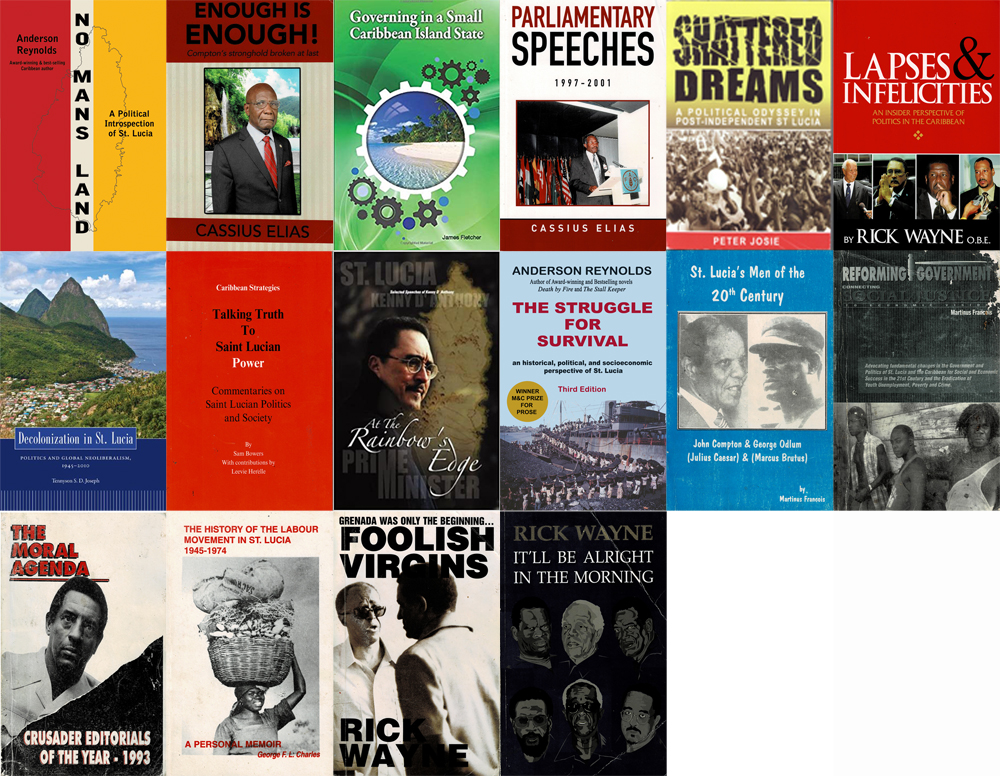
For example, a few years ago, I met a nurse who told me with touching emotion that my book, Death by Fire, that she read after my visit to her primary school literally changed her life.
More recently, I run into a young lady who works at a Vieux Fort bank. She stopped me in the middle of the JQ Plaza parking lot to gush about how much The Stall Keeper enlightened her. She said Vieux Fortians were among the most difficult customers she has dealt with at the bank, and she use to have a negative disposition towards them, but after reading The Stall Keeper and gaining a better understanding and appreciation of the history of Vieux Fort, she now views these same customers in much kinder light and no longer dread serving them.
What never fails to amuse me is that a St. Lucian author will host a book launch or an organization will host some literary event, and with an attendance of 50 guests, the organizers would lament how St. Lucians don’t read, and are disinterested in uplifting activities. But I attend literary events in New York with a population of over 8 million and a metropolitan area population of nearly 20 million, compared to St. Lucia’s estimated 2020 population of 184 thousand, and rarely do I see more than a hundred or two in attendance. In that light, isn’t the 50 persons attending the St. Lucian event a great success? We publish a book and are able to sell 300 copies at prices much higher than what obtain internationally, but conclude St. Lucian’s don’t read. But aren’t sales of 300 books in St. Lucia equivalent to sales of over 540,000 in the US with an estimated 2020 population of 331 million. I think most US authors and publishers wouldn’t consider this a failure, and I don’t hear US authors lamenting Americans don’t read.
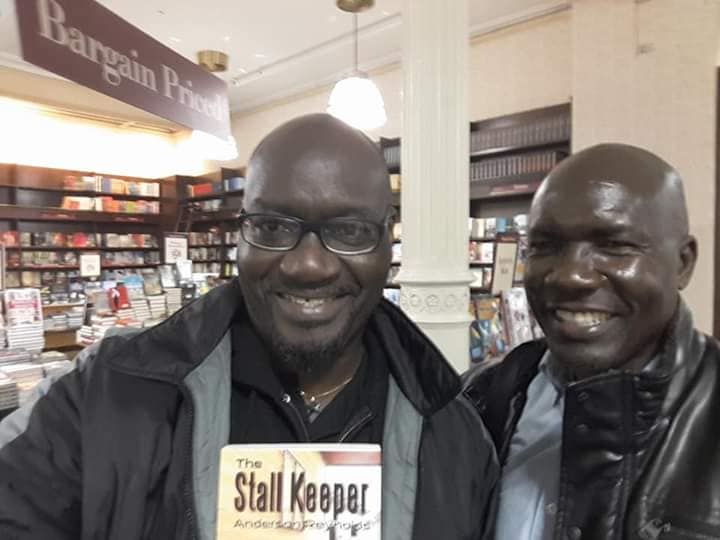
I was also amused when Vladimir Lucien who, after winning the 2014 overall Bocas Prize for his debut poetry collection, Sounding Grounds, and traveled to various countries for interviews and book readings, on his return home expressed surprise/disappointment at the unimpressive number of people who attended his and other authors’ book events in the metropolitan countries. I was amused because I already knew that some of us are under illusions; we invariably believe that things are much better and much more appealing overseas. Never thinking that maybe it is just that we are not giving ourselves and our activities sufficient importance. Meaning, we may be underselling or underappreciating or undervaluing ourselves and our endeavors.
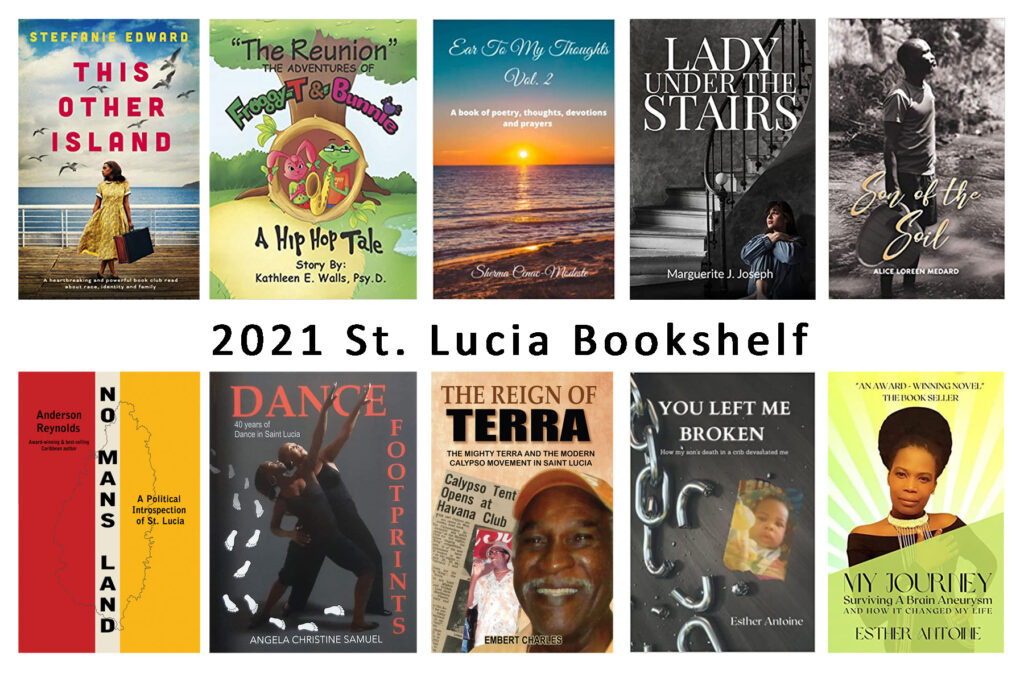
The Bocas Prize is the Caribbean’s major literary prize for anglophone literature. Vladimir was the youngest ever winner and at the time only the second St. Lucian to win the overall prize. The first was Derek Walcott for White Egret in 2010. Since Vladimir, a third St. Lucian/Canadian, Canisia Lubrin, won the overall prize in 2021 for her second poetry collection, Dyzgraphxst. Note, however, Kendel Hippolyte, who delivered this year’s prestigious Derek Walcott Nobel Lecture had won the poetry category of the 2013 Bocas Prize for his collection, Fault Lines.
Again, how we think about things, including how we define success, can make all the difference in the world. If we discard the notion that St. Lucians don’t read, then the solution switches from not bothering to write books to exploring ways of reaching readers and inculcating the habit of reading in our children.
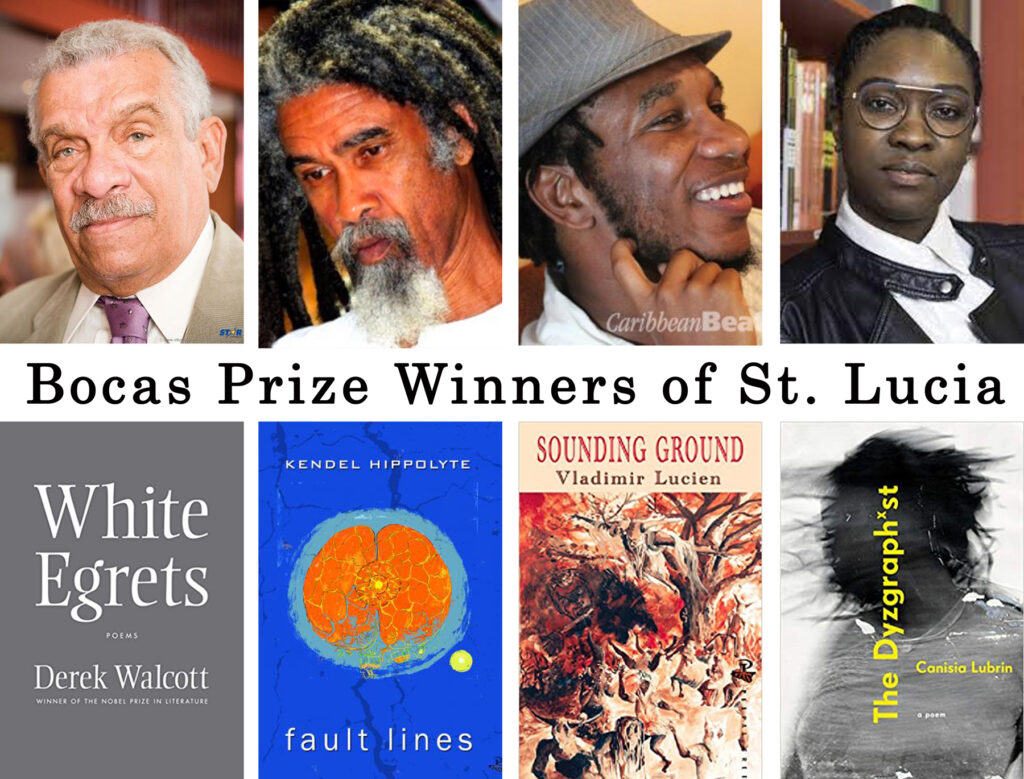
Is it a Question of Writers’ Concept of an Author?
Still, one can’t help but sympathize with our disillusioned self-published author. She has labored over a long stretch of time writing a book, then spent her hard-earned money packaging and printing the book, and after spending all that time, effort and resources, she is now finding out that for her book to sell she has to become a peddler, a vendor. A far cry from her image of an author, of her daydreaming of becoming a best-selling, critically acclaimed wordsmith, basking in the glory of her countrymen, occupying a rarified position in society.
This must be particularly galling to our dear author, because making money was never a prime motivation for writing. She simply had a compulsion and an inclination to express herself in words, and she had something to say that she thinks was worth sharing with the world. She wants to be read, appreciated, and recognized, not going around pandering, peddling, vending, to make a buck.
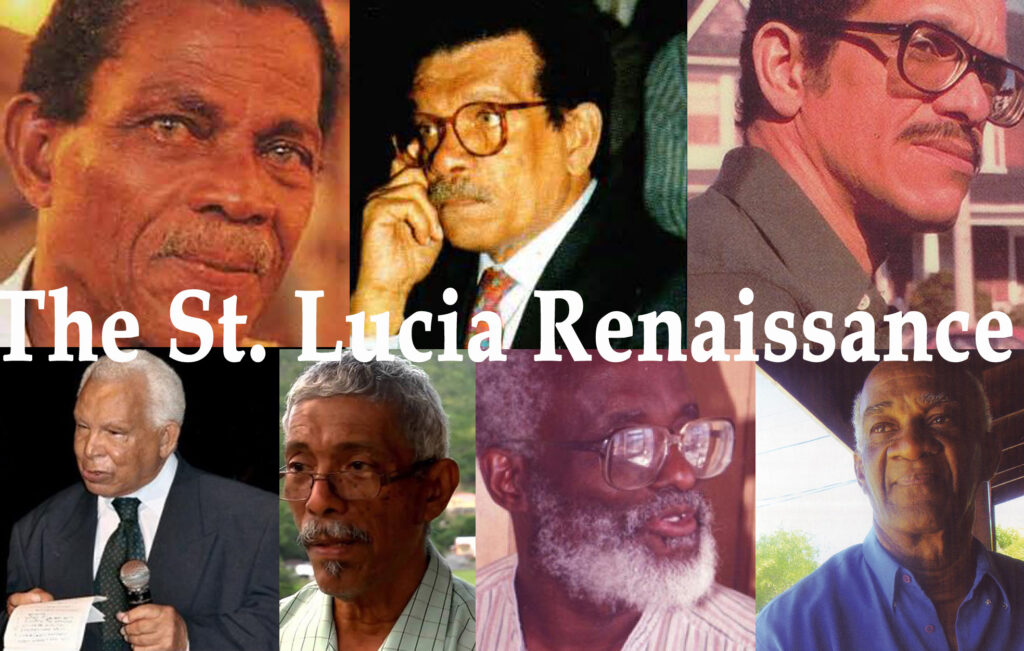
You see, what does happen in a traditional author-publisher arrangement is that the author produces his masterpiece and arrogantly or maybe even disdainfully deposits it at the doorsteps of the publisher, and besides having to rewrite and revise, the author can remain in his dignified, rarified writing space. Because, while the author may not care two hoots about money and profits, as business enterprises, the publishers with no dignity to protect are all about sales and profit. So they gleefully go about marketing and exploiting the works of the authors. It is a win-win proposition. Authors earn a living from something they were doing or willing to do for free while holding on to their dignity and basking in public adulation, and the publishers, well, smile all the way to the bank.
Is it a Question of No Book Stores?
In recent years, what has made matters worse for our self-published authors, indeed all authors, is that there isn’t a single traditional or dedicated bookstore left in St. Lucia. The last two—758 Books and Valmont’s Book Salon— that approached the notion of a traditional bookstore, meaning one with retail floor space dedicated to books of general readership, closed down just before or after the start of the COVID pandemic. So now, in St. Lucia, if the author is lucky, or the proprietors are his friends or family, or if she begs long enough and hard enough, she may get an office supply store or a general giftshop to grudgingly carry her books as an afterthought.
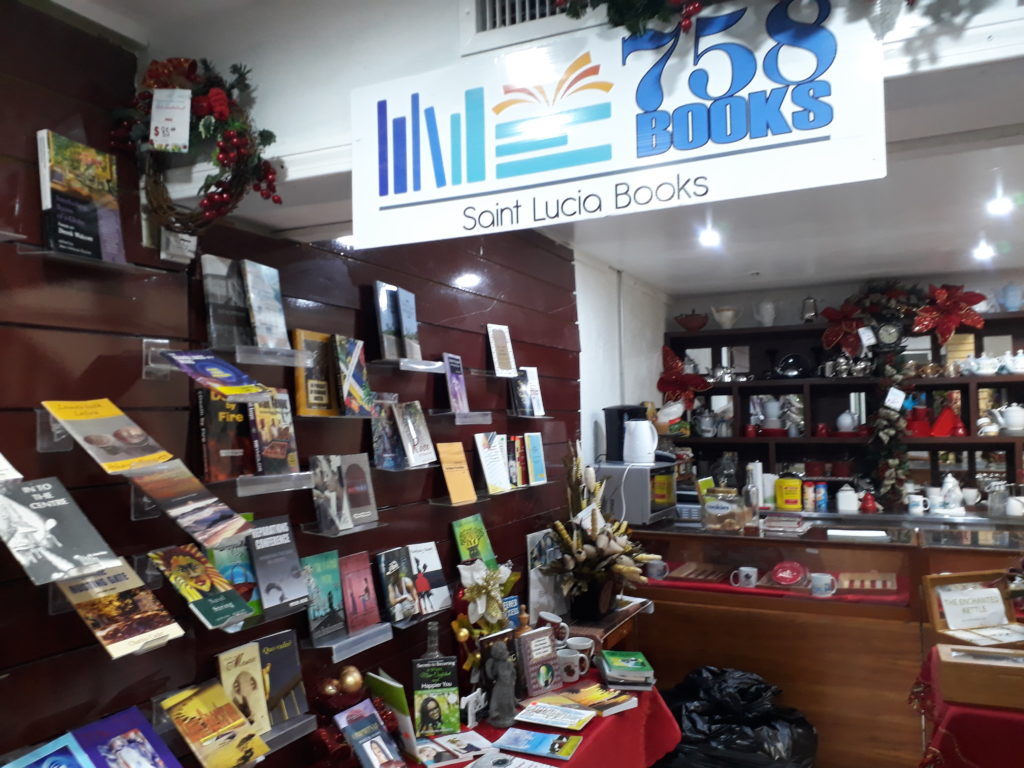
Yet book lovers all know that bookstores and libraries are an integral part of the reading and enjoyment of books. They are part of a lifestyle. Bookstores encourage and promote reading, browsing, discovery, and purchases. A St. Lucian may want a book, but there may be nowhere to purchase it. So now, in the absence of bookstores, our disenchanted self-publisher has to become even more of a peddler to stand any chance of selling a decent number of books. Imagine that: Most of my books are sold not at outlets resembling anything like a bookstore, but at airport and hotel gift shops.
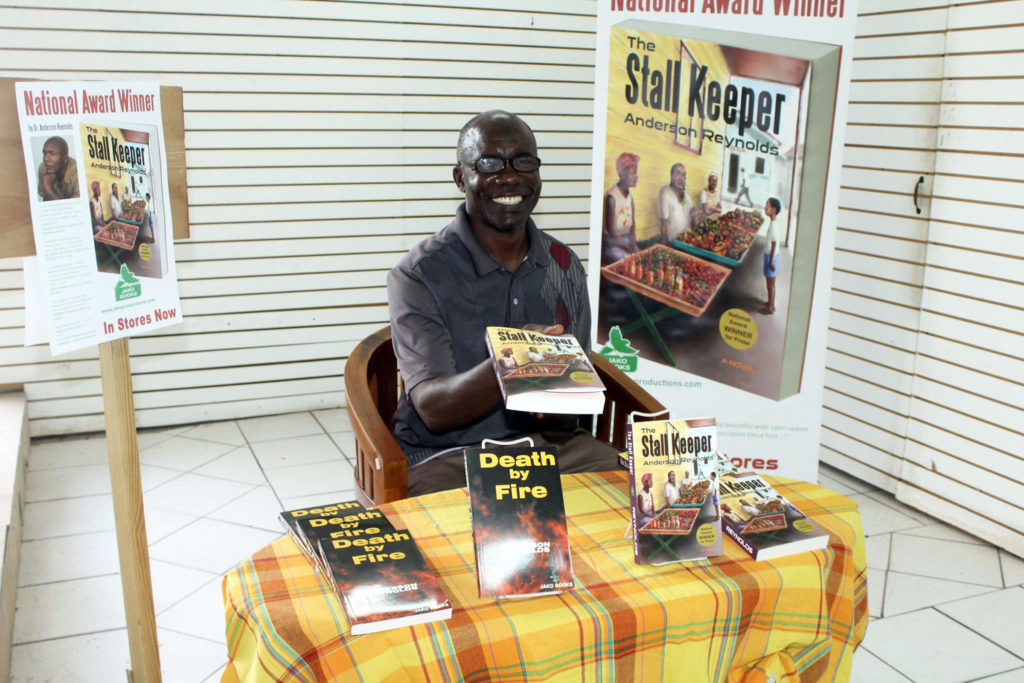
The Rastafari Community sparked a cultural revolution in the sixties and seventies and they have led the way in helping to instill black pride and an appreciation for our African heritage. Today they are at the vanguard of our reparation movement. In terms of bookstores, they have once again come to our aid, for recently the community opened the Ubuntu Rastafari Cultural Center at the corner of Jeremie Street and Chausse Road, with a bookstore as a centerpiece of the foundation.
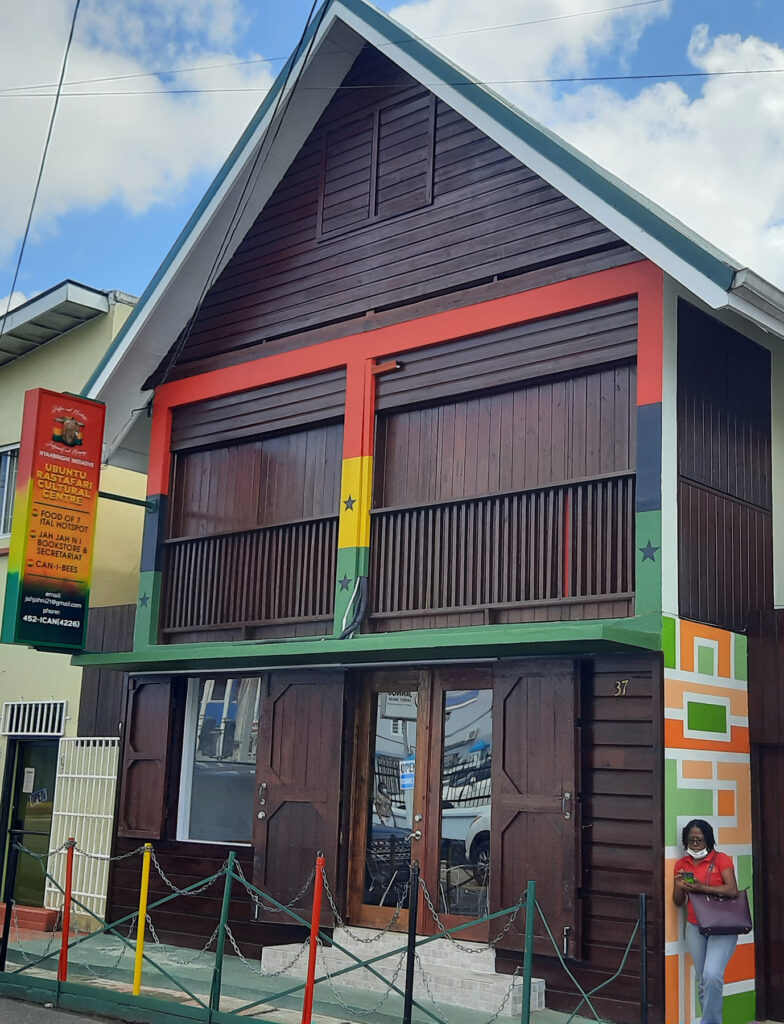
Is it a Question of Ignorance?
Our authors have other hurdles to overcome. Just about every time and everywhere I conduct a book signing, I encounter St. Lucians, some college graduates, who proudly proclaim they don’t read or have no time to read. But this attitude is thwart with danger. Reading broadens our perspective and makes us better writers and speakers. It strengthens the mental muscles and keeps the mind agile and young. It improves our ability to focus and concentrate and also our comprehension, retention, analytical and critical thinking abilities.
Besides, how else can we gain in-depth knowledge and understanding of a subject matter? And how do we dispel our biases and prejudices if we don’t expose ourselves to balanced, objective, well-developed points of view, the kind we are more likely to gain from books? I will go on a limb and posit that the writing process is one way of gaining the deepest and most insightful kind of thinking possible (certainly true in my case). With writing we unwittingly access the inner sanctuaries of the mind. So by reading, we may be catching a glimpse of the human mind’s deepest thought processes.
If through a lack of reading, we fail to develop sound reasoning and logic, and our thinking remains shallow, how do we not fall prey to the Donald Trump of the world?
Crime in St. Lucia has climbed to unprecedented heights in recent years. For example, the 74 murders committed last year were the highest in the island’s history. I will go on a limb and say that the same way the majority of our crimes are committed by young people ages 17 to 29, most of these murders were committed by people who are not habitual readers of books. Reading induces reasoning and deliberateness, tampers emotions, and helps in seeing the other person’s point of view. It engenders self-awareness, self-affirmation, self-possession and thus readers are less likely to resort to violence as a means of settling disputes and to engage in self-harm. It improves our communication skills, therefore helps us to better articulate our displeasures and hurts, which may be important in reducing violent crime, since maybe much of violence is a symptom of an inability to express ourselves or lack of safe outlets for our negative or grievous emotions. Like engagement in sports and art and culture, time spent reading books is time away from bad company, from the streets and the block, from the theatres of crime. Most of this is speculative, but imagine that: If we can force every person under 35 to read just two books per month, our crime rate may plummet by, say, half. If so, the people who, instead of encouraging their children to read, are proudly proclaiming they “don’t read,” do not know how much harm they are causing the nation. And if besides the reading program, we can compel our people under thirty to be full participants of structured sports and art and cultural programs, we can maybe reduce our crime rate by an additional 25 percent.
Moreover, we may be proud of ourselves that we don’t read, but the people scripting and developing the movies we like to watch, the video games we like to play, the apps without which our work, our life, comes to a standstill, and the social media platforms that have made the virtual more real than the actual, are all writers and hence readers, because it is only people who read who write. So if we don’t read and hence we don’t write, we are destined to be consumers not creators, users not content providers.
According to the US Chamber of Commerce, “America’s Intellectual Property (IP) is worth $6.6 trillion, more than the nominal GDP of any other country in the world, and its IP-intensive industries account for over 38% of total U.S. GDP.” So if we are not creators and are not content providers, and thus are not generating intellectual property, we are denying ourselves a huge slice of the world economy.
Is it Something to do with the Water we Drink?
Our St. Lucian authors may have yet another strike against them. I does be in St. Lucia with little urge to read. But no sooner I board a plane (to say, New York, because these days most times that’s my destination), I pick up a book and become a voracious reader; in New York, visiting bookstores daily and buying and reading a bundle of books. I need help here. Because I don’t understand this. What is it about these metropolitan countries that, compared to St. Lucia, draw me into books? Do their expansiveness, isolation (as in everyone you meet is a stranger), anonymity, independence/individuality, temperate climate, even, forces one to seek solace in books. And is there something about the water we drink, the food we eat, the way our society is organized, our closeness/everyone knows everybody, our landscape, our weather, that doesn’t sit well with reading? Or is it just me?
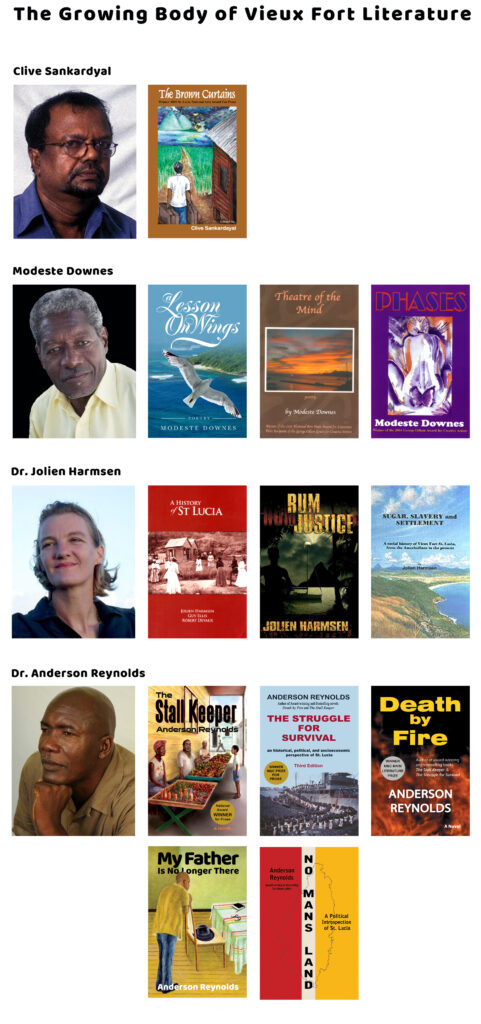
Whatever it is or isn’t, we would do well to ensure that St. Lucians Don’t Read doesn’t become a self-fulfilling prophecy. Because reading is too important to leave to chance. It nourishes, develops, and expands the mind. It broadens our horizons and fosters deep, independent, critical thinking that serves as a safeguard against bigotry, tyranny, and demagoguery. And it is good for our material advancement.
The Making of a Thriving Reading Public
The onus is on all of us—authors, readers, parents, schools, government—to turn St. Lucia into a thriving reading public. Therefore, we would do well to establish book clubs in our secondary schools, fully stock our school and community libraries with St. Lucian books, and place St. Lucian books on the reading list of all secondary schools. Authors would do well to extend their book launches and book readings and signings into national tours, school visits, and excursions into the diaspora. To keep abreast of literary events and St. Lucian books as they are published, we would do well to join the St. Lucia International Book Club Facebook group.
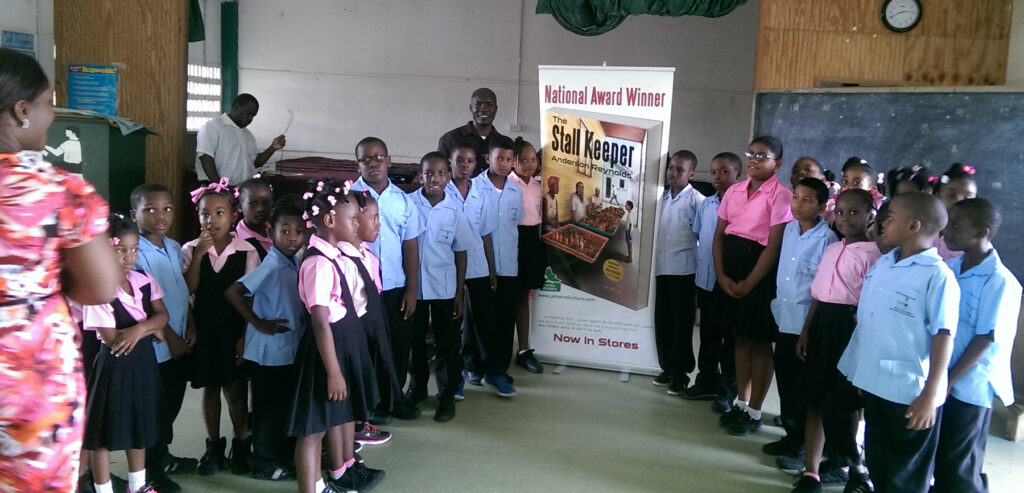
Parents would do well to establish home libraries well stocked with St. Lucian books and to include a book as part of the gift package every time they give their children presents, starting with them as preschoolers, because with cell phones, social media, video games, etc., providing a constant stream of distractions and lines of least resistance entertainment and engagement, parents can no longer take it for granted that their children will automatically turn to books to occupy their time. Their involvement and insistence is the only way to ensure that their children will form the habit of reading. Businesses and government would do well to help establish an annual book fair. St. Lucian poet, journalist, and librarian, John Robert Lee, has made several recommendations for the upliftment of St. Lucian art, literature, and culture. The government would do well to heed his admonishments.
About the author
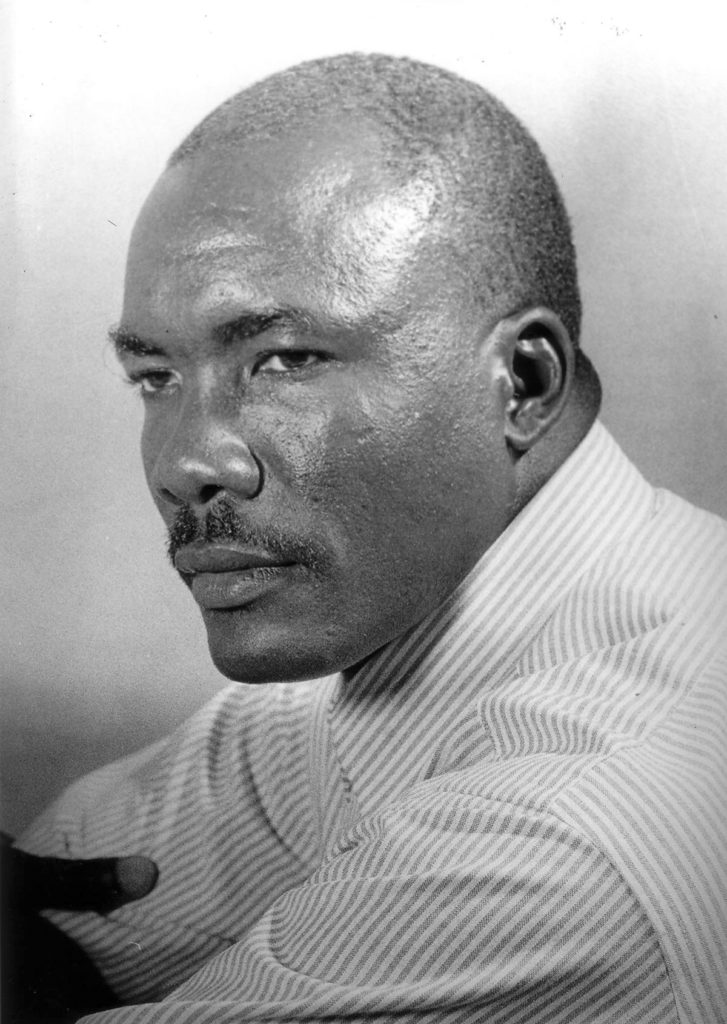
Biography
The World of Anderson Reynolds
Recent Blogs / Happenings
A Scream in the Shadows
a novel by McDonald Dixon
The 2022 Derek Walcott Memorial Nobel Lecture
delivered by Kendel Hippolyte
Poems for Kendal at 70
John Robert Lee on Revitalizing and Upgrading St. Lucia’s Cultural Institutions and Programs
January 6th – Epiphany
from Office Hours (for Charles Cadet 1924-2021)
by John Robert Lee
Skeete’s Bay, Barbados
by John Robert Lee
2021 St. Lucia Bookshelf and other Gems
The Motherland in Despair
by Anderson Reynolds
![]()

